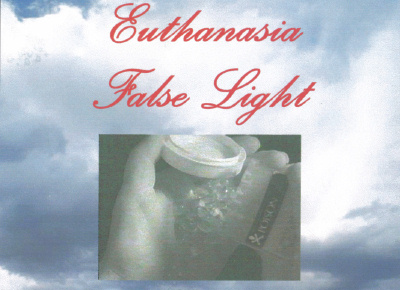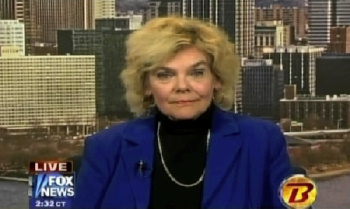If you are young and healthy, do you need an advance directive?
If you are in poor health, do you need an advance directive?
If you have discussed your wishes about health care decisions with your family, do you need an advance directive?
The answer is to each of these questions is “yes.”
You are at risk unless you have taken the simple but necessary step of signing an advance directive that will protect you if you are ever unable to make your own health care decisions. This is known as a durable power of attorney for health care.
It’s not the same as another type of advance directive known as a “living will.” (The living will — sometimes called a “directive” or a “declaration” — is downright dangerous. It actually gives power over your life and death to an unknown physician.)
In a durable power of attorney for health care, you designate a trusted family member or friend to make health care decisions for you if you are unable – either temporarily or permanently – to do so for yourself.
Most people think such a document is only for those who are very sick or very old. That’s not true. It’s absolutely essential for anyone who is 18 years old or older.
Some (but not all) states have laws to cover a patient who hasn’t designated someone to make health care decisions. Such laws contain a “priority listing” of those who can make decisions for an incapacitated patient. But, in some states, those decisions may be limited to withholding or withdrawing treatment. They may not give the necessary authority to protect a patient. In other states, the law gives doctors the power to decide for patients if there are conflicts among those on the list.
Here are just three illustrations of what can happen if you haven’t specifically named someone to make your health care decisions:
Bob is a 19-year-old college student. He is seriously injured in a sports accident. His condition is now stabilized. He is expected to improve, but he is not able to communicate yet. Some decisions must be made about his therapy and treatment.
Bob’s parents are unable to get information from his medical records and have no authority to make decisions for him because Bob is in a state that does not have a priority listing of decision makers.
Joe and Sally are married with three children – 15-year-old Bob, 18-year-old Tom and 20-year-old Mary. Driving home from a local restaurant, Joe and Sally are hit head-on by another car. Joe is killed. Sally is in critical condition.
Sally’s twin sister, Sue, who is very close to Sally and with whom Sally had often discussed her wishes about health care, rushes to the hospital. She attempts to get information about Sally’s condition. She is told the law prohibits disclosing such information to her. Instead, the information can be given to Tom and Mary who, under state law, have the authority to make medical decisions for their mother.
Unfortunately, Tom and Mary do not get along with each other and the law requires agreement between them before any action can be taken. This leads to a delay in authorizing treatment that could have vastly improved Sally’s ability to recover fully.
Alex is a 57-year old truck driver. While mowing the lawn, he has a heart attack. Due to a lack of oxygen, he has sustained brain damage. He hasn’t named anyone to make health care decisions but he lives in a state with a priority listing that gives his wife, Anna, first priority in making his decisions. Anna knows that Alex would not want a ventilator but would want to be tube fed if necessary.
Alex is breathing on his own and is being fed by tube. His brother, Dave, objects to the tube feeding. The doctor in charge of Alex’s care thinks the tube feeding should be stopped.
In the state where Alex and Anna live, the attending physician or an advanced practice nurse can select a decision-maker who is ranked lower in priority if, in his or her judgment, that person is “better qualified.” Because Dave agrees with him, the doctor decides Dave is better qualified than Anna to make decisions for Alex. The tube is removed and, 12 days later, Alex dies of dehydration.
To be certain that a person you trust will be making decisions for you if you can’t do so yourself, you must have a durable power of attorney for health care that specifically names that person.
As with any legal document, the wording of the durable power of attorney for health care is critically important. And it must comply with the laws in your state.
That’s why the Patients Rights Council formulated the Protective Medical Decisions Document (PMDD). The PMDD is a durable power of attorney for health care that has been drafted to protect you.
It gives the person you name to make your health care decisions the authority to act on your behalf. That person is generally referred to as your “agent.”
The PMDD limits your agent’s authority in one specific way. It clearly states that your agent does not have the authority to approve the direct and intentional ending of your life.
For example, your agent may not authorize that you be given a lethal injection or an intentional drug overdose. Further, your agent may not direct that you be denied food or fluids for the purpose of causing your death by starvation or dehydration.
This limitation not only protects you, but it also protects your agent from being subjected to pressure to authorize such actions.
The PMDD also has specific directions that are necessary in the current medical climate.
For example, some health care providers have taken it upon themselves to put Do Not Resuscitate (DNR) orders in place without the patient’s or agent’s authorization. Similarly, some health care providers, ethics committees and health facilities are making decision about what is “appropriate” or “beneficial” based on institutional cost-containment considerations, not on the basis of what is best for or wanted by the patient.
The PMDD makes it clear that DNR orders and decisions about what is “appropriate” or “beneficial” are to be made only by your agent (if you’re not able to do so).
There’s something else.
Some states require that, when a durable power of attorney for health care is distributed in printed form, it must have a specifically printed “notice” or “warning.” The PRC distributes state-specific PMDDs for those states as well as a Multi-State PMDD for use in other states.
A PMDD protects you.
When you have a PMDD, you or someone you’ve selected – not some unknown physician or nameless bureaucrat – will make your health care decisions.
Filling out a PMDD takes only a few minutes – far less time than applying for health insurance, car insurance or even applying for a credit card. And it can be even more important.
Having a PMDD can mean the difference between life and death.
Each PMDD packet contains: detailed questions and answers about the PMDD, a checklist to use when signing your PMDD; three PMDD forms (so that you can provide documents with your original signature to your agent and to any alternate agents); and a wallet card on which you can write the names and phone numbers of your agent and alternate agents so they can be reached in case of an accident or emergency.
If you don’t already have an advance directive, the PMDD packet is a must. If you have another type of advance directive, review the PMDD and decide whether you may wish to replace your existing document.
And, if you already have a PMDD, now is the time to see to it that each and every member of your family and all of your friends have one as well.
While you may never be in a situation where a PMDD will be needed, isn’t it a good idea to prepare for the worst while hoping for the best?
Isn’t it better to be safe than sorry?
There is no charge for the PMDD. A donation of $50 is requested, but not required, for each PMDD packet.
If you would like to obtain a PMDD, call 800-958-5678 or 740-282-3810 between 8:30am and 4:30pm (eastern time).
More Information: PMDD




